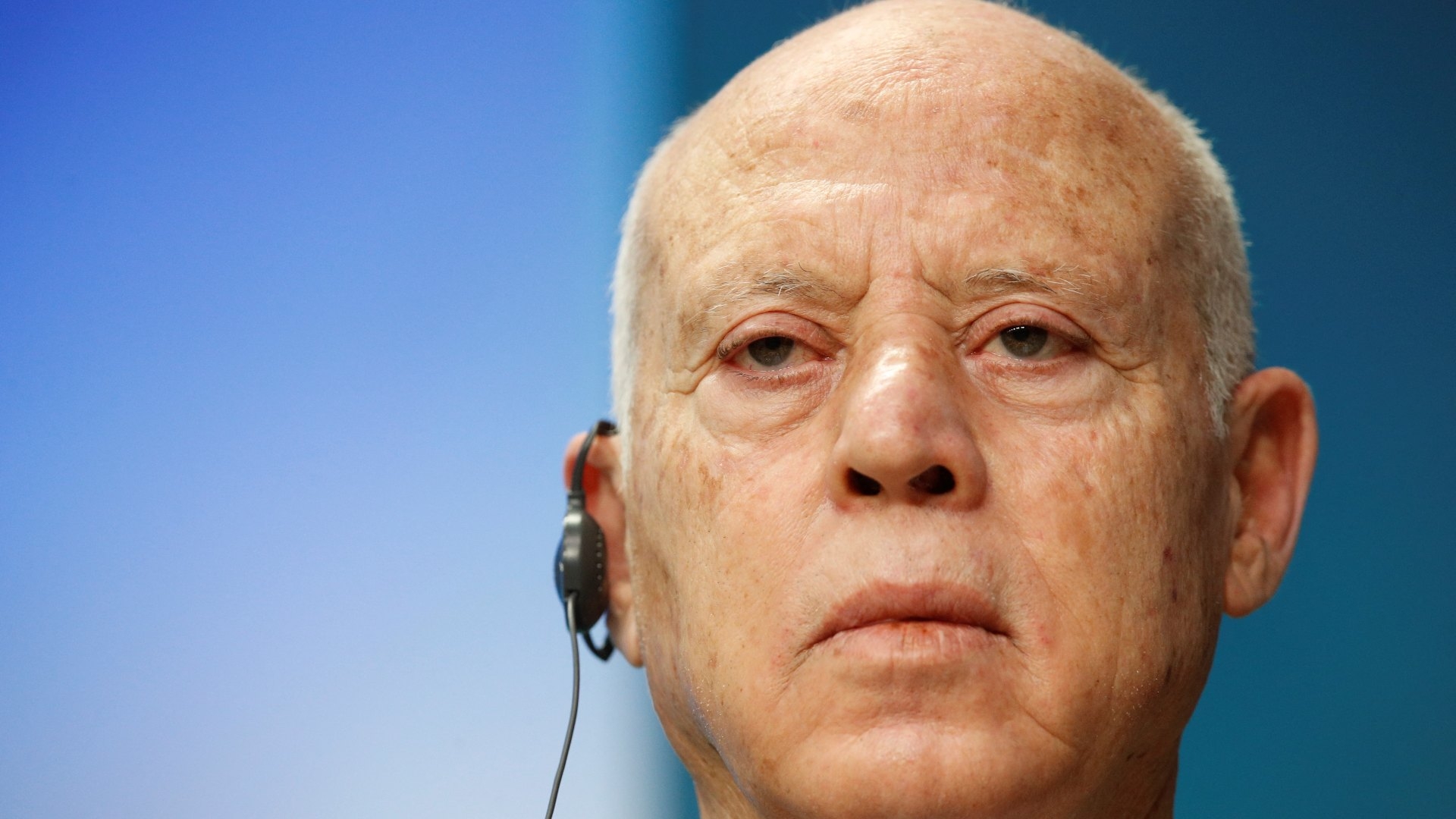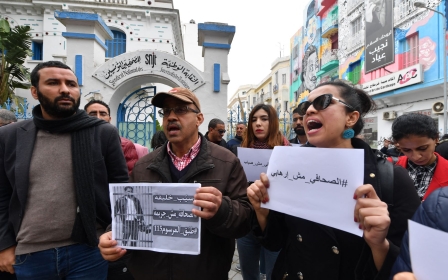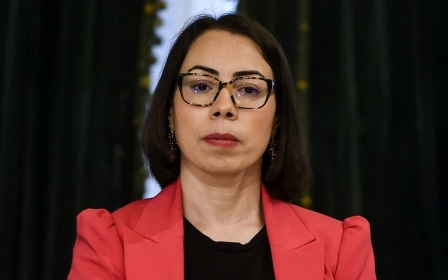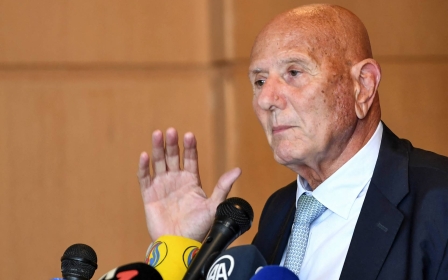Tunisia opens probe into alleged recordings of president's former aide

Tunisian prosecutors are investigating whether recently leaked recordings criticising President Kais Saied involved one of his former top aides.
The Tunisian Court of First Instances' prosecutor's office announced on Wednesday that it would open a probe into the recordings which allegedly feature Nadia Akacha, who served as Saied's chief of staff and closest adviser for around two years before quitting in January, the TAP news agency reported.
In the 11 recordings, which were released last Friday, someone alleged to be Akacha is heard saying that Saied's "end will be very dire, because he is sick and does not want to admit his illness, and insists on that", adding that he "suffers on a very personal and psychological level".

The person in the recordings also warned that she could cause "an earthquake" in Tunisia if she revealed what she knew.
Akacha has said the recordings have been doctored and are part of a "campaign of distortion" against her.
Akacha was Saied's closest aide when the president dismissed the government and suspended parliament in July 2021, in a move condemned as a constitutional coup.
She quit her role in January, citing "fundamental disagreements" with the administration as the president's post-coup policies faced growing criticism, and now lives in Paris.
While Akacha still continues to speak in favour of the power grab, in a Facebook post last month she branded Saied and his circle as a "group of losers who do not understand anything".
She also wrote that "unfortunately this moment and this path were seized by someone who has no honour, no religion, no patriotism".
'Democratic experiment is being rapidly reversed'
Saied seized power in Tunisia in July 2021, dismissing the government and suspending parliament.
Two months earlier, Middle East Eye had revealed that Akacha's office had a copy of a plan for Saied to take these very steps and declare a "constitutional dictatorship", which the authors of the document said would be a tool for "concentrating all powers in the hand of the president of the republic".
Saied cited skyrocketing unemployment, rampant corruption and the coronavirus pandemic as reasons for his power grab.
Since last July, Saied has granted himself powers to rule and legislate by decree and has seized control over the judiciary.
Earlier this week, he announced the launch of a "national dialogue" to help resolve the country's political crisis - but excluded critical opposition groups.
In a statement, Saied ruled out those "who sabotaged, starved and mistreated the people", suggesting the process would not include parties and civil society organisations which denounced his power grab, including the Islamist-inspired Ennahdha party.
Last week, a group of US lawmakers and rights organisations called on the administration of US President Joe Biden to pressure Saied to stop what they described as the country's "democratic backsliding".
The push came as 50 US rights groups and Muslim-American organisations sent a letter to Secretary of State Antony Blinken calling on the White House to use its leverage to pressure Saied to "restore democratic order" in Tunisia.
"Tunisians have made hard-won gains over the subsequent decade to establish a long-sought democracy, even as other post-Arab Spring states backslid into dictatorial rule or descended into civil war," said the letter, which was signed by Democracy for the Arab World Now (Dawn) and the Council on American-Islamic Relations (Cair), among others.
"But now Tunisia's delicate democratic experiment is being rapidly reversed after a blatant power grab by its autocratic president, Kais Saied."
The letter also urges Washington to halt $500m in development grants that "requires Tunisia to meet democratic thresholds, until this same condition is met".
Middle East Eye delivers independent and unrivalled coverage and analysis of the Middle East, North Africa and beyond. To learn more about republishing this content and the associated fees, please fill out this form. More about MEE can be found here.




